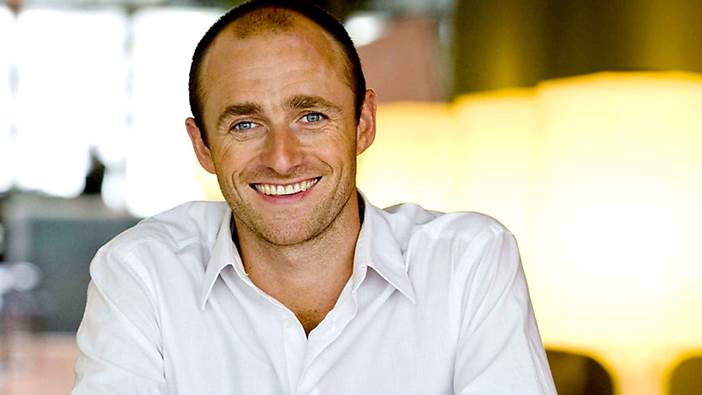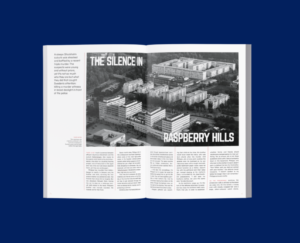
Investigative reporting is one of the most crucial forms of journalism, now more than ever. But with the financial challenges facing the media industry, and the opportunities created by the Digital Revolution, its landscape has changed.
Nowadays, newspapers are full of reports about spying scandals and worries about data protection, while social media has opened up a whole new realm of possibility for finding and spreading information.
XCity Plus spoke to Mark Daly, BBC Scotland investigations correspondent, about how these technological developments have affected investigative journalism – and how despite all the new tools – many of the fundamental skills remain exactly the same.
Throughout your career as a journalist, which investigations have been the most memorable?
The one I’m most well known for is the documentary The Secret Policeman, where I went undercover for almost a year as a policeman to expose racism. I actually became a policeman. At the time, this technique was relatively new. Also the investigation into the murder of Stephen Lawrence, which was very much an old-fashioned investigation, going door to door and trying to pick up scraps of information and persuade sources to speak. Then over the past few years, my investigation into the Catholic Church.
Do you think the role of an investigative journalist has changed over time?
Ultimately, journalism is journalism. Investigative journalism is quite a grand title for what is actually just journalism for people who have a bit more time, a bit more resources and a bit more cunning. The most important attribute for investigative journalism is an incurable nosiness, a curiosity to try and get underneath a story in a way that other reporting hasn’t really managed to do. That hasn’t changed massively in the period that I’ve been a journalist.
What are the main differences since you first started your career?
I remember at one of my first jobs on The Scotsman newspaper in 1998, I was asked to write a story about the demise of a certain breed of frog, because it was said that the survival of frogs can be quite indicative about changes in our environment. But this was before the internet, so I basically had to find a bunch of frog experts – look in all the university books, find biologists and experts and phone around. Quite often, young journalists come in and they find picking up the phone really nerve-wracking. That’s one of the things that’s changed for the worse. Of course the most dramatic change has been the advance of the internet. You have all the information about a particular subject at the click of a button now.
And what about for investigative journalism in particular?
The different ways you can do data journalism and the Freedom of Information Act – which I try and use sparingly to check out if a story is true rather than simply fishing. I think that often we can get very focused on the new dynamic elements of journalism, all the new tools. These are all fantastic tools, but that’s just what they are – tools to help you do your job. Almost all the time, the best stories come from human beings. It’s more problematic now because journalists are busier, there are fewer journalists, there are fewer resources and there is less time to go and spend meeting people.
How has social media and blogging affected your job?
It can be helpful. People tend to be pretty useless at their privacy settings on Facebook, so you can track people down much quicker than you could in the old days. Twitter helps you work out what sort of person someone is, what kind of comments they make. But it can also be a hindrance, a way of information getting out and spreading that you wanted to stay secret while you’re trying to work it up into an exclusive piece.
Have things like hacking and WikiLeaks changed the way an investigative journalist works?
Investigative journalists don’t hack material – it’s not legal. But with things like WikiLeaks, this is information that should be in the public domain. I would much rather that information came into the hands of experienced journalists who can distil it, rather than simply dumping millions of pages of material onto a website before checking it. For example, the Fancy Bears. I don’t think they know what it is that they’ve got. I don’t even think they know what they’re looking for. But I have reported on some of the material they’ve leaked, because it’s been leaked and is in the public domain. While I can’t condone the method of information getting out there, this is information that we would otherwise not have had. I don’t want to be too pompous about the hacking. Yes, it’s illegal and journalists shouldn’t resort to it, but occasionally these are matters in the public interest and we should know about them.
Looking into the future, what are your predictions for investigative journalism?
There are some dangers. The Investigatory Powers Act is potentially very dangerous in terms of a journalist being able to guarantee source protection. We will have to be much more careful about how we store a confidential source’s material. You’ll have to think about sending letters, faxing, meeting, speaking on landlines – all these sorts of things to make sure you fulfil the most important rule of journalism, which is protecting your source. I think the need for investigative journalism has never been greater. We’re in unheralded times – not only with what’s going on in America, but with all the government establishment gaggles which are ongoing at the moment. Whether it’s sport, politics, policing, the church, it just seems to me we’re in a really vibrant period of news and world events. If ever we needed investigative journalists to be on top of their game, it’s now.


















